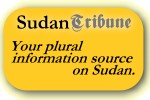Sudan to unveil new action plan on troubled Darfur
KHARTOUM, Sudan, Sep 5, 2004 (PANA) — Sudanese authorities are currently preparing an action plan aimed at bringing a final settlement to the conflict and tantalising humanitarian and security situation in the country’s civil war-ravaged western Darfur region.
 Khartoum plans to establish an ad-hoc committee to carry out a comprehensive programme to end what the United Nations has
Khartoum plans to establish an ad-hoc committee to carry out a comprehensive programme to end what the United Nations has
described as the world’s current worst humanitarian crisis.
“The plan will be presented to United Nations immediately after
being completed…it involves provision for more security,
political action and continuity of humanitarian aid,” the
Sudanese foreign minister, Mustafa Osman Ismail, said in a
press statement issued here late Saturday.
Last month, the UN Security Council ordered Khartoum to disarm
the Janjaweed, a government-backed Arab militia accused of
widespread human rights abuses against the African population in
Darfur and violating a cease-fire agreement signed with two rebel
movements last April.
The Council gave Khartoum a 30-day deadline, which expired
on 31 August. UN secretary general Kofi Annan said Wednesday the
militia had not been disarmed and attacks were continuing.
The plan, Ismail said, will concentrate on maintaining security
inside camps of displaced persons and villages, making
humanitarian assistance available and giving momentum to a
political solution.
Meanwhile, Ismail described the United States description of the
conflict in Darfur as genocide as wrong, adding that recent
hardening of US statements on Sudan was aimed at domestic
constituencies and the ongoing presidential election campaign.
“As long as elections are going on, and as long as both parties
are competing for the votes of the African-Americans you should
not expect a neutral or fair position to the situation in
Darfur,” Ismail told reporters.
Two days ago, the US said it was preparing a new UN resolution on
Darfur and that Secretary of State Colin Powell might give his
views next week whether the violence in western Sudan constituted
genocide.
The US Congress has already labelled the conflict in Darfur
genocide but the administration of President George W. Bush has
not yet taken that step.
Ismail said he planned to call Powell later this week to explain
the current situation in Darfur.
“Its (U.S.) decisions are influenced by internal factors whether
they be lobby groups or the pending elections. …(U.S.)
Congress’ stance on genocide is and remains a solitary one …
because it (genocide) is simply not happening,” he said.
“We are open, we are ready for co-operation. You (America) should
give us a chance. You shouldn’t push for confrontation,” he said
in a direct speech to the President Bush’s administration, which
has launched a relentless campaign against Khartoum concerning
the conflict in Darfur.
Washington D.C. has also adopted a carrot and stick approach in
efforts to solve the 21-year- old south Sudan’s civil war.
Referring to the threats by US , European Union and UN against
his government, the minister said “the sanctions would not help”.
After getting a report on Khartoum government’s response to the
UN deadline, Annan said last Wednesday that some progress had
been made in curbing the militia but the “vast majority of armed
militias has not been disarmed.”
Ruling out the sanctions, UN envoy for Sudan Jan Pronk proposed a
wider mandate for African Union monitors to help stop abuses in
Darfur.
Washington D.C. reacted quickly saying the UN was not being tough
enough with Khartoum.
Ismail explained that Khartoum was not against increasing the
number of African monitors in Sudan, but said Sudanese forces
should remain responsible for security in the region to prevent
these from being caught up in the conflict.
Nigerian President Olusegun Obasanjo, who is the current chairman
of the African Union, said the pan-African group was prepared to
send more forces and observers to Sudan if requested.
“We should not give the impression that we are against the
presence of the Africans. What we are saying is that Darfur is
full of weapons … So keeping of security, direct security,
should be the responsibility of the Sudanese forces,” Ismail
said.
According to UN estimates, the conflict that erupted in Darfur in
February 2003 has killed up to 50,000 people and displaced about
1.4 million others from their homes.
The European Union renewed Saturday its threats to slap
sanctions on Sudan if it fails to rein in the Janjaweed.
The African Union has sent 133 unarmed military observers in
Darfur and a 300-strong force of Rwandan and Nigerian soldiers to
protect them as they monitor a shaky cease-fire signed between
the government and rebels in Chad on 8 April.
Two rebel groups, the Sudan Liberation Movement (SLM) and the
Equality and Justice Movement (EJM) took up arms against Khartoum
in February 2003 to protest alleged marginalisation of Darfur.
